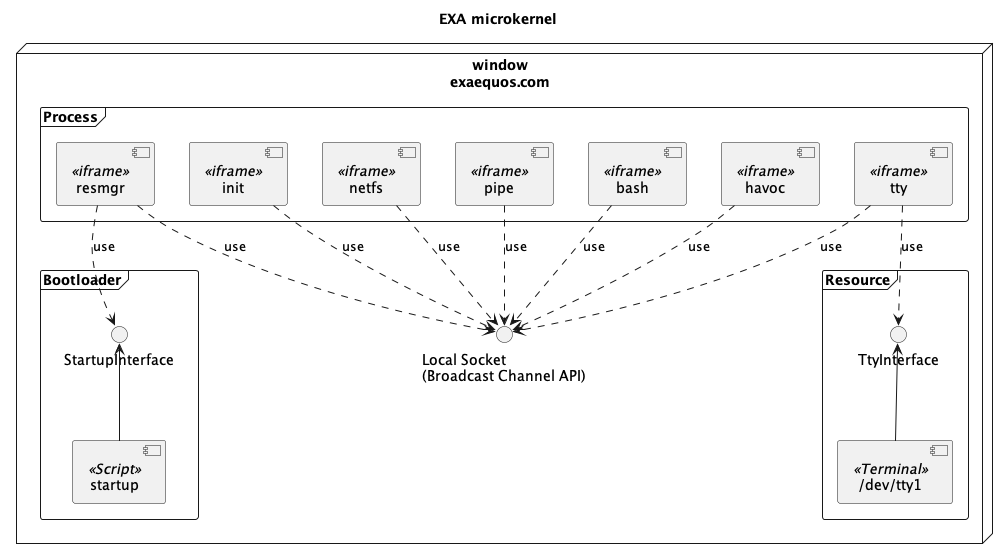EXA kernel¶
EXA kernel is a brand new Unix-like kernel specifically designed for running in a Web browser. EXA kernel is open-source (GPL v3) and can be found on GitHub.
Microkernel architecture¶
I thought (and still think) that a microkernel architecture was well suited for this kind of operating system, every driver being a process. Every process runs in its own iframe.

Startup sequence¶
- EXA kernel is started in the following order:
Initial script starts the resource manager (resmgr),
resmgr starts tty driver
resmgr starts netfs driver
resmgr starts pipe driver
resmgr start init process (system V init)
init reads the /etc/inittab file and starts the processes as specified in this file
init starts localfs process
init starts oxygen desktop process
Processes¶
Here is a overview of the main processes part of the kernel:
resmgr: resource manager implementing process management, driver/device management and virtual file system (vfs)
tty: driver responsible for sending characters to (pseudo-)terminal and receiving characters from it
netfs: driver responsible for getting files from the server (or localhost) and mounting the remote files hierarchy on /bin, /usr/, /etc
init: System V init process responsible for starting the (not yet started) processes
localfs: driver responsible for reading/writing files on the local persistent browser IndexedDB storage. It is mounted on /home
pipe: driver responsible for implementing the pipe mechanism of the OS
These processes are written in C and compiled in WebAssembly with the emscripten-exa toolchain.
Interprocess communication (IPC)¶
Iframes exchange commands and data through BroadcastChannel Web API that is seen as a local socket (datagram mode).
Musl libc¶
emscripten toolchain uses musl libc. So every process is linked with musl. syscalls implementation have been addapted for communicating with resmgr and drivers.